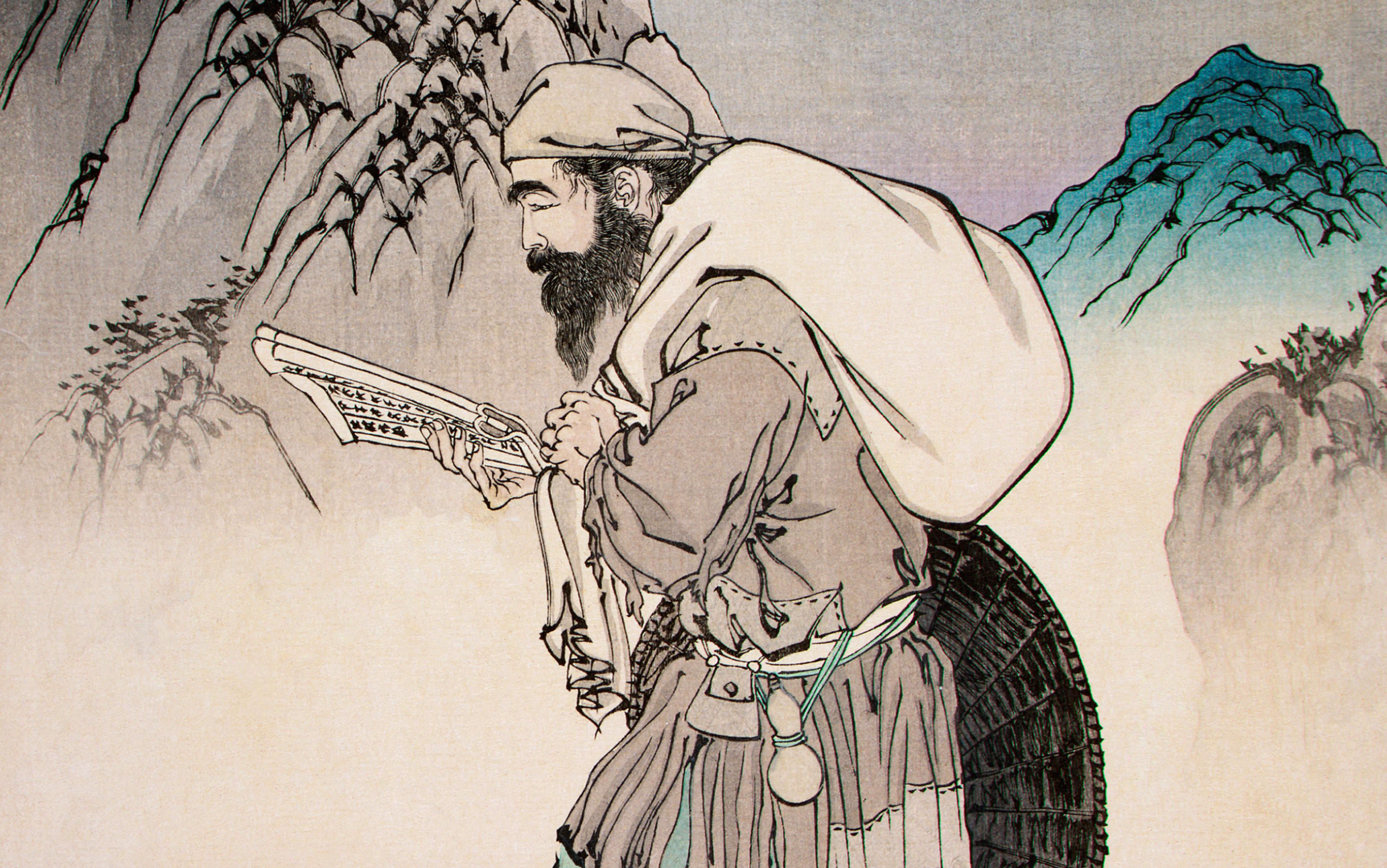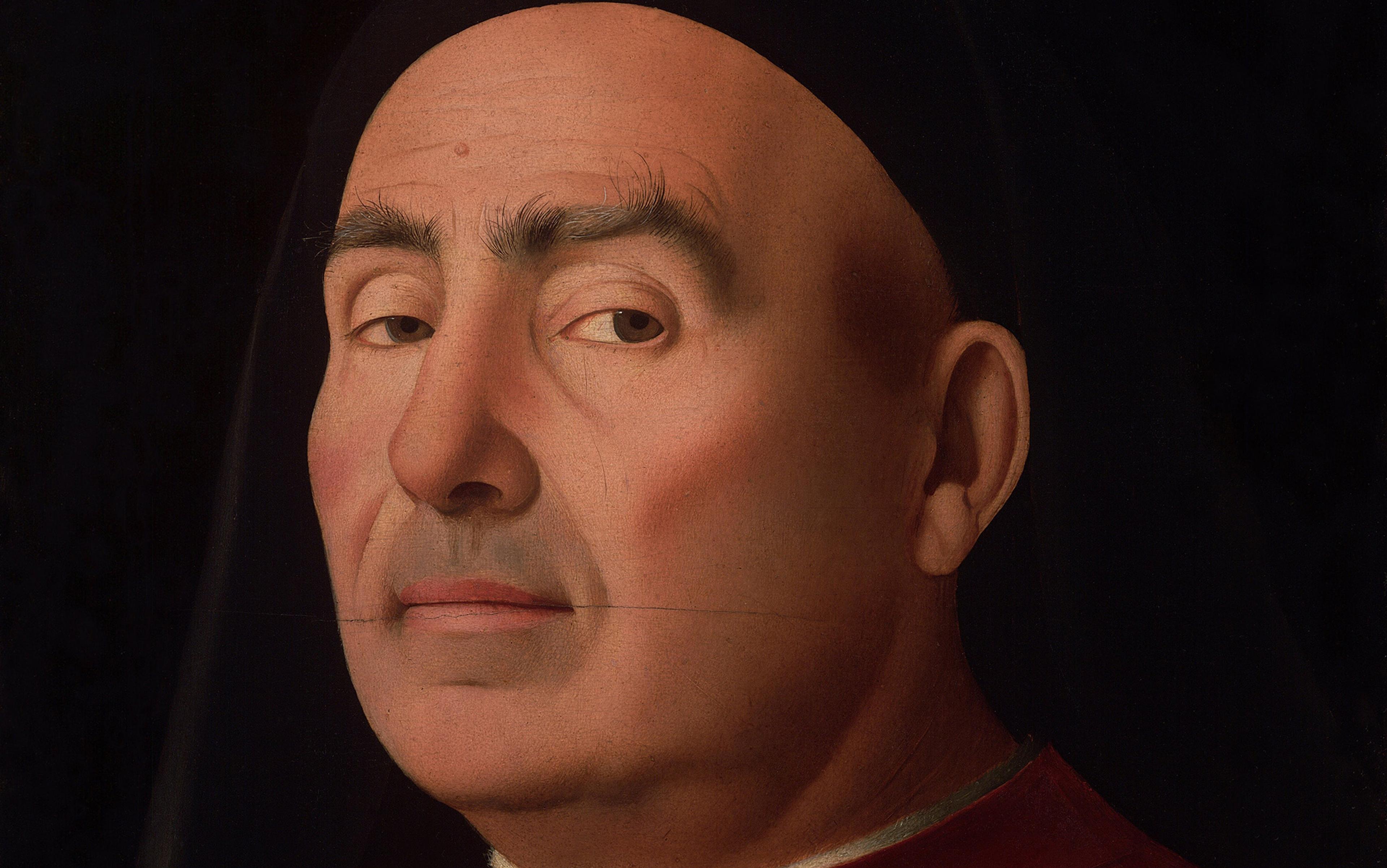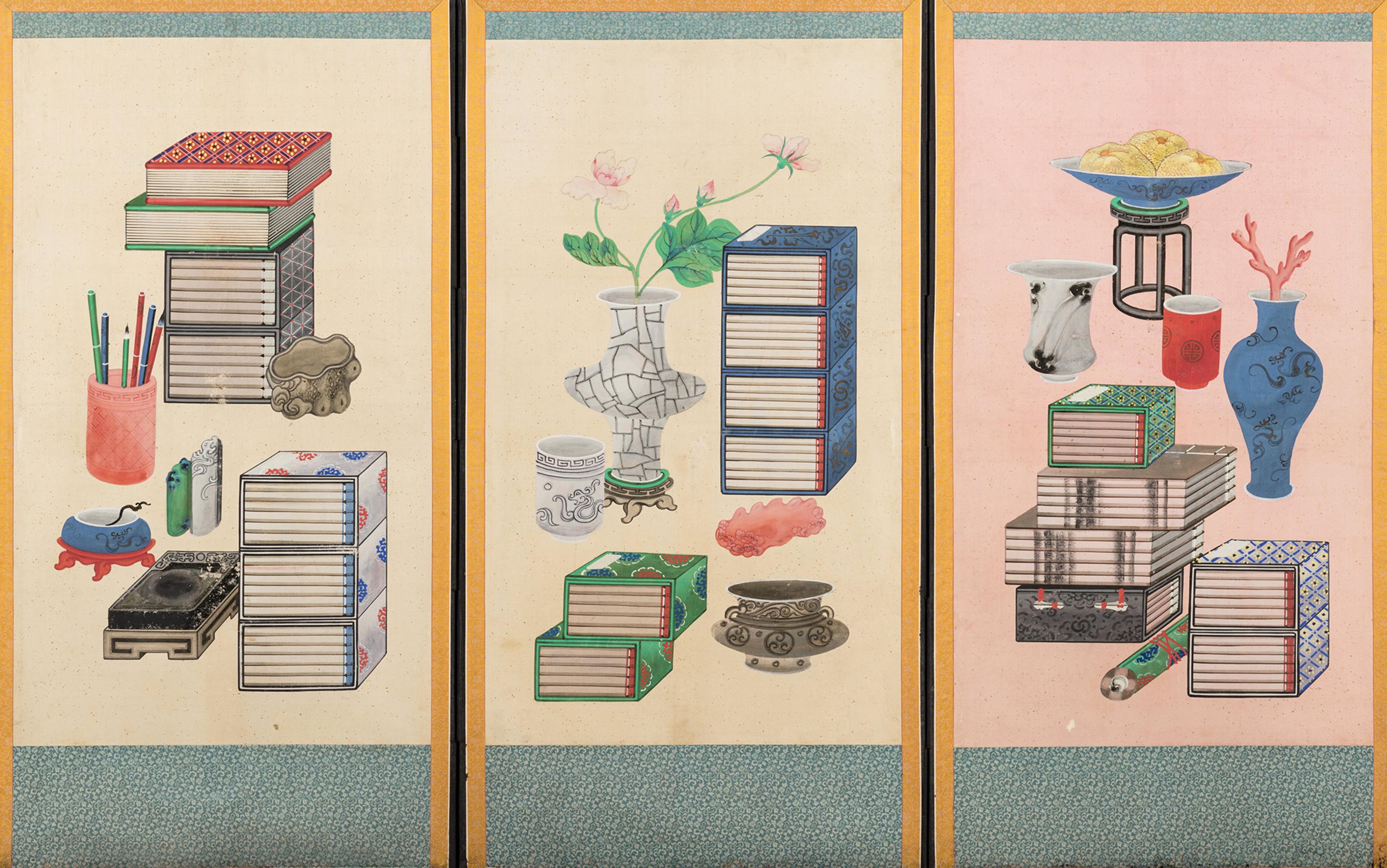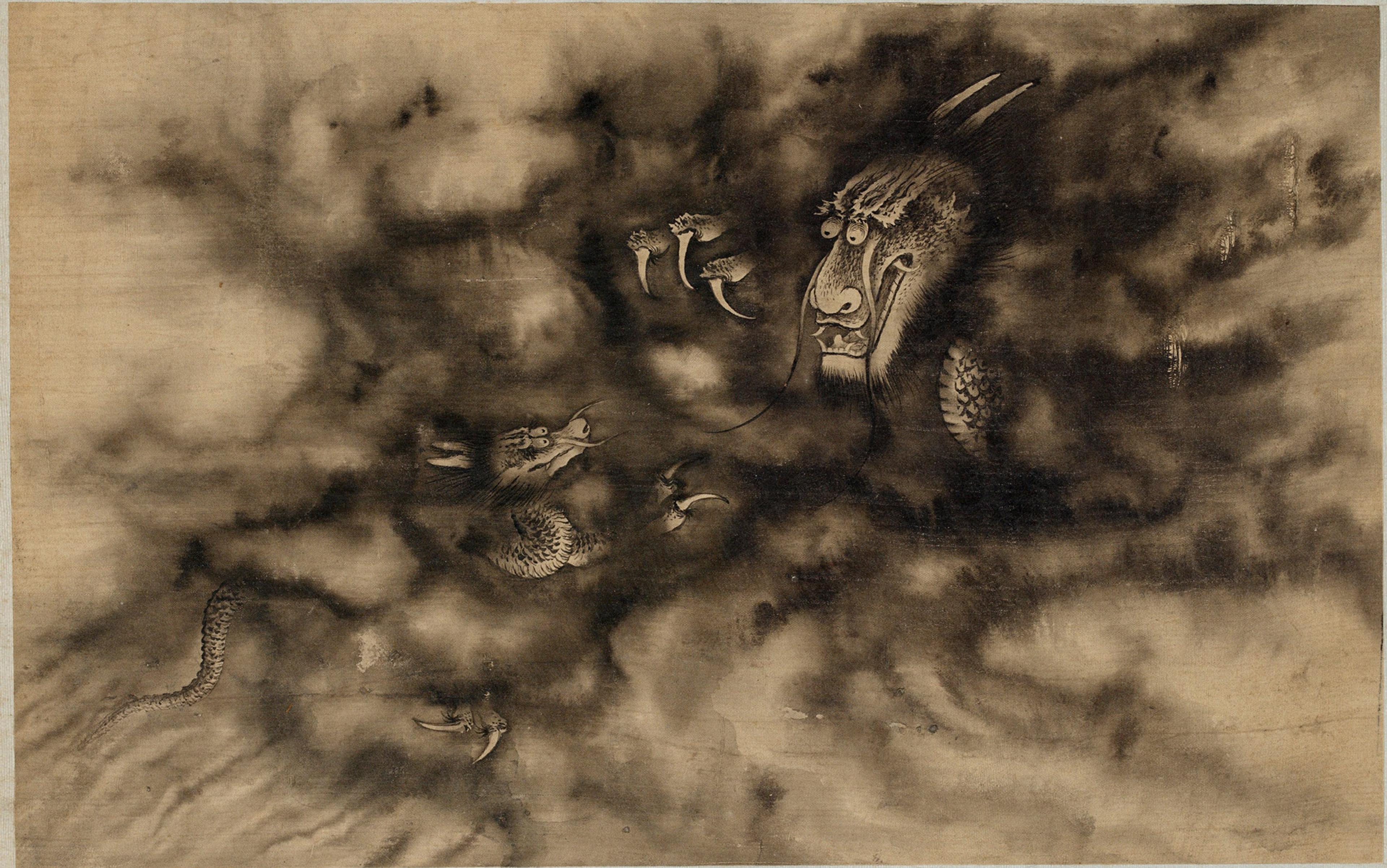Some people want to blame individualism for everything. Politicians argue that it has replaced the common good, religious people that it is displacing faith in God, mental health advocates that it has led to an epidemic of loneliness. Opponents of ‘radical’ or ‘rampant’ or ‘hyper-’ individualism argue that this ideology is not only at the root of many of our social problems, but also undermines any attempt to make things better.
At the same time, others demand more individualism. They want a society that accepts a wider range of life choices and identities, one where personal uniqueness is cherished and celebrated rather than met with intolerance. Many also worry about the threat to individuality from various forms of technology, such as social media, Spotify algorithms and AI. Are we too individualistic, or not individualistic enough?
In the modern West, individualism takes on many forms. Perhaps the most readily apparent is in a political philosophy that puts the freedom and the rights of individuals as its highest values. The social contract theory of Thomas Hobbes and John Locke treats society as originating from an agreement of free, self-interested persons, in which government exists for the purpose of securing individual rights. These views are also reflected in an economic system that encourages individual innovation in the pursuit of wealth, and treats private property as sacrosanct.
But individualism runs deeper than politics and economics, pervading our very notion of who we are. In the United States, the view that every individual is unique is held by Christians who believe each person is created in the image and likeness of God, as well as by secularists who believe that people should be free to determine their own identities, regardless of traditional norms. From an early age, children raised in individualistic societies are encouraged to follow their passions, make their own choices, and express who they are. They are instilled with values like self-reliance, ambition and personal responsibility.
Even when we criticise individualism, we remain entrenched in individualist modes of thinking. Liberal and conservative, religious or secular, hip-hop or punk or country – in countries like the US, these are merely different names for the competing brands by which individuals define themselves. Given our total immersion in the individualist worldview, how can we get an accurate perspective on it? How do we distinguish the good aspects of individualism from the bad?
One response to the many challenges of individualism emerging in my field of crosscultural philosophy is: study Confucianism. In the past decade, a new kind of philosophy has arisen that, in its published works, uses ideas from ancient Chinese philosophers such as Confucius (551-479 BCE), Mencius (4th century BCE), and Xunzi (3rd century BCE) to challenge the hegemony of individualist ways of thinking. Many of these works have titles that advertise Confucianism’s relevance to the modern predicament: Against Individualism: A Confucian Rethinking of the Foundations of Morality, Politics, Family, and Religion (2015) by Henry Rosemont, Jr, who taught at Brown University, Rhode Island; Confucian Role Ethics: A Moral Vision for the 21st Century (2016), by Rosemont, Jr and Roger Ames, a scholar at Peking University, China; and Confucian Relationism and Global Ethics: Alternative Models of Ethics and Axiology in Times of Global Crises (2023) by the Slovenian philosopher Jana S Rošker.
Others have broader projects that incorporate other East Asian philosophical traditions besides Confucianism, such as Oneness: East Asian Conceptions of Virtue, Happiness, and How We Are All Connected (2017) by Philip J Ivanhoe; or The Geography of Morals: Varieties of Moral Possibility (2016) by Owen Flanagan. Perhaps the most readable of all these books is the international bestseller The Path: What Chinese Philosophers Can Teach Us about the Good Life (2016), by the Harvard professor Michael Puett and the journalist Christine Gross-Loh. What all the books have in common is that they look to Confucianism and other philosophies outside the West for an alternative conception of the individual self and its relation to others.
The purpose of these works of crosscultural philosophy is not to get rid of the individualist worldview in its entirety. As Rosemont asks: ‘Who in their right mind would criticise the concept of human freedom?’ He points out that individualism, in its emphasis on equal rights for everyone, has led to vast improvements in the human condition overall. In pluralistic modern societies, it underpins the right to select one’s own religious or philosophical worldview without interference from others.
People living in individualistic societies tend to exaggerate their own uniqueness
Yet even people living in individualist societies can recognise that the worldview leads to problems when taken to its extreme. At the broadest level, it encourages a mindset of seeing others either as competitors or as means to our own satisfaction. In politics, it undercuts attempts at social justice or building safer and healthier communities, holding that any restriction on individual rights is either ‘communism’ or ‘fascism’. A number of our books begin with a litany of global problems that the individualist worldview seems powerless to solve: climate change, wealth inequality, political polarisation. While individualism encourages an ethic of personal responsibility in relation to our own choices and actions, it doesn’t ask much of us in connection to issues that we did not directly cause.
As Flanagan and Ivanhoe point out, there are core aspects of the individualist worldview that lack empirical support. Evidence from psychology suggests that people living in individualistic societies tend to exaggerate their own uniqueness, and also challenges the view that individuals make good predictions and choices about what will make them happy. Flanagan asks whether the individualist model might be a mistake on the part of people living in WEIRD (Western, educated, industrialised, rich, and democratic) societies, who have incorporated old theological beliefs about God and Judgement Day into their current views about self-determination and personal responsibility.
Individualist thinking can also negatively affect our ordinary lives. The Path, a book I have purchased multiple times as a graduation gift, takes on the ethos of self-actualisation that is present in individualist societies. As Puett and Gross-Loh write:
Many of us now believe that each of us should be a unique individual who knows himself. We believe we should be authentic, loyal to a truth we now tend to locate not in a higher deity but within ourselves. We aim to live up to the self we were meant to be.
Yet, they go on to argue, such notions in fact serve to limit our potential by giving us a narrow picture of who we are and what we might become.
While we can try to confront the problems caused by individualism one by one, the only real cure is a wholesale change in perspective. ‘This increasingly dire situation,’ Ames and Rosemont, Jr, write, ‘can only be addressed and arrested by effecting a global-scale radical change in human intentions, values and practices.’ The purpose of these works of cross-cultural philosophy is to map out an alternative conceptual scheme that offers a fresh way of thinking about contemporary social problems and will lead to improvements in our lives and relationships.
Contemporary scholars give different names to this alternative: Confucian role ethics, which is meant to highlight the contrast with abstract and impartial Western ethical theories; Confucian relationism, where the second term expresses the centrality of social connections in Chinese society; or Confucian familism, which highlights the family as a model for society. Ivanhoe employs the more general concept ‘the oneness hypothesis’ to show the importance of interconnectedness in Confucianism and other East Asian philosophical traditions.
The Confucian alternative begins from a notion of what contemporary scholars call the ‘relational self’ – that a person cannot be understood in isolation from their connections with those around them. What is most relevant about me is not that I am a free and autonomous agent, but rather that I am so-and-so’s son or daughter, grandchild or sibling; someone’s teacher, colleague or mentor; a member of such-and-such neighbourhood and community. In its conception of the person as inseparable from their relationships, the role-bearing self poses a challenge to the social contract view of humans as pristine individuals who participate in society only voluntarily.
For the early Confucians, familial roles come first. Children are expected to practise filial piety (xiao) towards their parents, which means not just serving them, but doing so out of a sense of gratitude and respect. According to the Confucian text Classic of Filial Piety, xiao begins with treating our body like it is a gift from our parents, and culminates in conducting ourselves in the right way so that we uphold our family name for posterity. The value is not just directed at parents, but also asks us to have reverence for our ancestors as we work to establish our own places within the family lineage.
At its worse, xiao can seem like a burden placed on the youngest and weakest members of society. Roles within the family do not always allow for the freedom or equality that are paramount in individualist societies. Children are not equal to their parents, and parents are not free with regard to caring for their children. Nonetheless, for the early Confucians, the values that we learn from good relationships within the family are central to building a society where people treat one another in the right way. They teach us what it means to be a member of a group that is held together by bonds of mutual consideration. The cultivated person, as Confucius says in the Analects, understands that, by helping others to establish themselves, he is, at the same time, establishing himself.
As Confucius says in the Analects, the cultivated person harmonises but does not necessarily agree
On the Confucian role-based view, the right thing to do depends largely on the particular person with whom we are interacting. Each relationship comes with different norms, and some of these norms are contained in specific rituals that are meant to govern our interactions. For instance, the way I greet my older and wiser retired colleague is different from the way I say hello to a group of students. Contemporary scholars contrast this particularism with contemporary ethical theories such as utilitarianism and deontology that set forth abstract principles that are meant to apply to every situation. Rather than following a list of moral rules or commandments, the Confucian focus is on cultivating yourself within the context of your everyday relationships – learning what it means to be a good child, sibling, parent, teacher, etc.
The rituals that govern our interactions with others help to ensure social harmony, which means making sure that all the different members of the group are able to flourish. In the classical Chinese context, harmony does not mean uniformity or sameness; as Confucius says in the Analects, the cultivated person harmonises but does not necessarily agree. Instead, harmony is a quality that emerges when people in different roles complement and support one another. One Confucian text compares it to a soup, where the combination of different ingredients produces something that is more complex and flavourful than any one ingredient on its own.
A challenge for the Confucian view comes from its acceptance of hierarchy and role-embeddedness as basic features of the relational self. One might argue that adopting this perspective would lead to exactly the sort of problems that individualism purportedly aims to eliminate: oppression, inequality, hostility towards outsiders. There has been a major debate among scholars of Confucianism over the past couple of decades about whether Confucian filial piety is the foundation of morality or, instead, a source of corruption that is best left behind. In addition, as scholars like Ann A Pang-White have pointed out, the Confucian focus on familial roles and relationships has often been an obstacle to women’s education and development.
At the same time, contemporary defenders of Confucianism aspire to show the ways in which the relational conception of self enhances our personhood rather than diminishes it. Ames and Rosemont, Jr contend that it is our embeddedness in familial and communal roles that truly individuates us. Whereas many people may have the same hobbies or like the same music as I do, my specific pattern of relationships is particular to me. When I stop looking inward for some ‘self’ that exists independently of the world and focus instead on my specific pattern of relationships with those around me, I can realise a more unique version of myself. As Ivanhoe puts it in Oneness, the relational perspective is not one that is supposed to erase our individuality, but rather to give us a broader conception of the self, one ‘that is seen as intimately connected with other people, creatures, and things in ways that typically conduce to the greater advantage, wellbeing, and happiness of all concerned.’
How much prospect does the relational alternative found in Confucianism and other traditions have for changing the value system of those living in individualist societies? It seems unlikely that the view will have much direct impact on politics in places like the US, where even the smallest gestures at social reform are met with fierce resistance from those who argue it will infringe on individual freedom. Rather than appealing to having a good society, even the reformers are forced to pitch their views in individualist language, such as when advocates of gun control begin to talk about a ‘right to safety’ or a ‘freedom from fear of gun violence’.
The relational perspective, as Rošker points out, asks us to take ownership for society’s problems rather than seeing ourselves as innocent victims. If I am embedded in a family, local community and society, what happens in these larger circles of concern is inevitably connected with my own choices and actions. Other contemporary scholars have drawn on classical Chinese philosophy to develop new models of agency that help us rethink our possibilities for action in the world.
Perhaps it is in our ordinary lives where the relational alternative can have its most direct impact. The Path by Puett and Gross-Loh is especially good on how we can use the kinds of daily ritual practices found in classical Confucianism to cultivate new qualities in ourselves. Instead of thinking that we have some ‘inner self’ that we need to be true to, acting ‘as if’ we want to be a certain way in our relations with others can help different aspects of our personality break through. By relying on the external forms of interaction contained in the rituals, we work to nudge ourselves in the right direction.
These practices have made the place I work feel much less antagonistic and more human
In my own life as a professor, I want to do more to treat my students not as an obstacle to my flourishing as an academic researcher, but as part of a shared good life. The modern university itself can seem like a hyper-individualistic place, where students who shoulder the increasing costs of higher education are focused on getting a return on their investment, staff and administrators experience high turnover rates, and professors with increasing demands on their time and energy feel compelled to guard their hours outside of teaching. Since we all returned from the COVID-19 pandemic, many of us have experienced the so-called ‘great disengagement’ happening on our college campuses.
In my daily routine at the university, I have been trying to do more to focus on my moments of interaction with students. I decided that, on the first day of class, I would go around and shake everyone’s hand and welcome them to my course. I resolved that it would be the ‘year of the conversation’, where I would try to go the full distance in my discussions with students outside of class, even if we wandered into territory that had little to do with the course content or if they stayed beyond the limits of my office hours. I made a rule that if I passed a student from a previous semester on my way around campus, I would try to stop and talk with them rather than just nodding hello and continuing on my way. Sometimes it works and sometimes it doesn’t. Yet, as time goes on, these practices have made the place I work feel much less antagonistic and more human. Lately, I feel more connected to the people around me and more assured in my role both in the classroom and around campus.
If it is impossible for people living in modern, Western societies to ever get rid of individualism in its entirety, the only cure is to develop more balanced and humane forms of individualism. If we see hyper-individualism as a problem, then studying traditions such as Confucianism can help us keep in view the broader range of things that ought to matter in a good human life. For those forms of individualism that we find worthy of our allegiance and protection, the Confucian relational perspective can deepen our perspective on what it means to be an individual among others, along with a set of daily practices that can aid in our self-realisation.
The ideal of interconnectedness is not limited to Chinese or East Asian philosophy. It is also found in Western political philosophers such as Aristotle; in contemporary communitarians and virtue ethicists; and in versions of care ethics that have been developed by feminist thinkers. Cross-cultural philosophers have used concepts from other non-Western traditions – such as ubuntu from African philosophy, or the no-self from Buddhism – to launch similar challenges to the predominance of individualism in modern life. Seen in the context of these other traditions both inside and outside of Western philosophy, individualism appears as less of an inevitability.
Since individualist philosophy is so deeply embedded in the cultures of much of North America and Europe, the study of non-Western traditions can be helpful in providing an alternative vision of the good life. One thing that crosscultural philosophy teaches us is that stepping back from our cultural norms is often far more difficult than we think. Even when they attempt to provide alternatives to individualism, philosophers working exclusively in Western traditions can remain mired in individualist assumptions. Philosophical traditions from Asia and Africa give us fully worked-out conceptual schemes that have developed in relative isolation from the Western individualist ethos. These traditions can help us figure out what we might be missing in modern societies, while at the same time showing us some of the things that we may have gotten right. In developing a better version of ourselves, we need all the help we can get.






